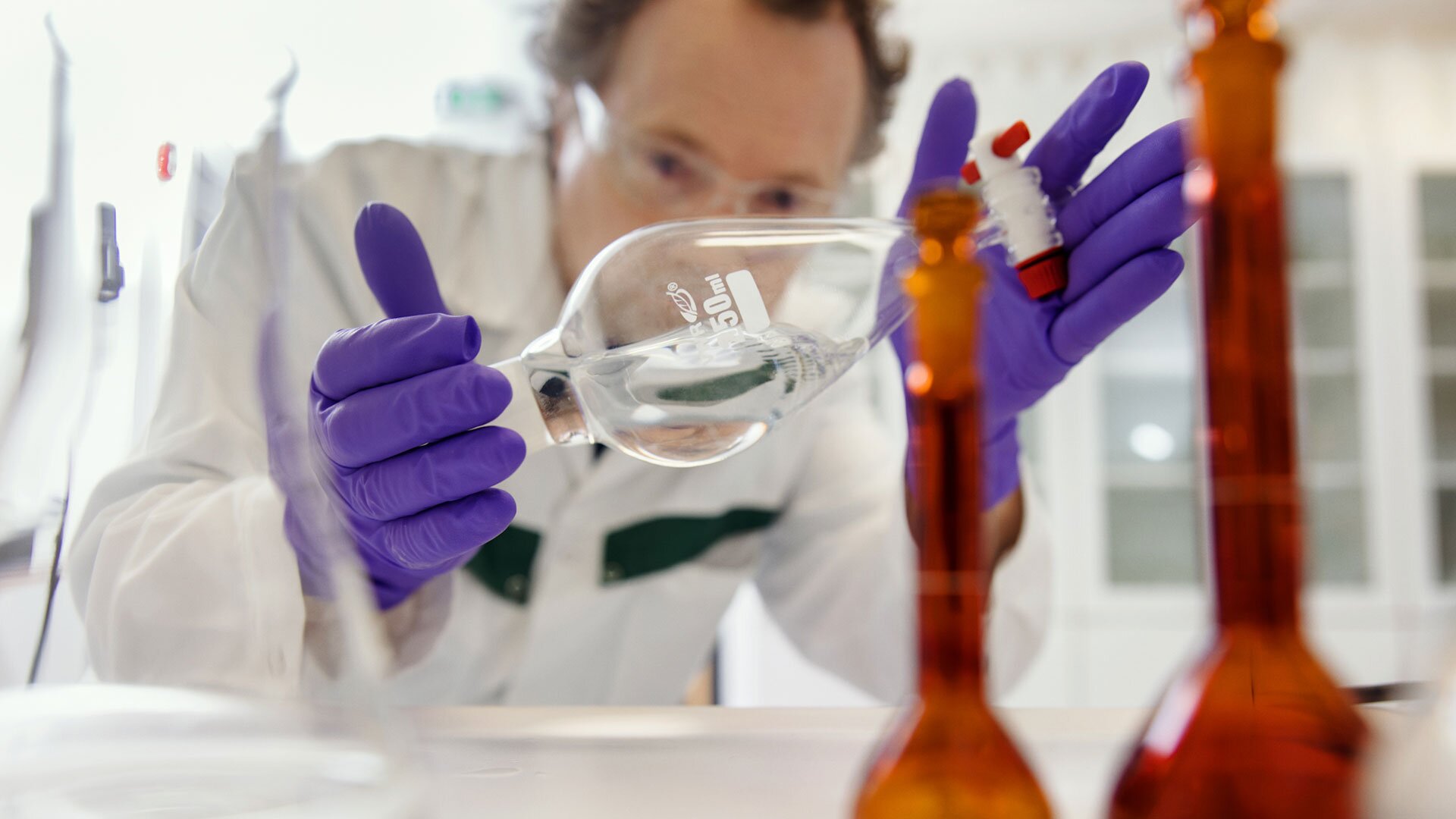Julia Lindqvist, Ph.D. in Cell/Cellular and Molecular Biology, started as a postdoctoral researcher at Orion in 2017, soon after completing her doctorate.
“My dissertation was related to oncology research. I had been wanting to work for a pharmaceutical company for a long time and to see how the research findings in my field could be put into practice,” she says.
Lindqvist drew up her research plan in collaboration with Orion.
“I set out to investigate how a molecule developed by Orion affects breast cancer cells and how the efficacy of the treatment can be improved by combining different medications.”
New research methods, new therapies
Henrik Paavilainen, Ph.D. in Virology, started his postdoc period shortly after Lindqvist. Encouraged by Orion researcher Ari-Pekka Koivisto, Paavilainen took a leap into the unknown, and entered a field he was not previously familiar with.
“I studied the way in which a new method could be used in drug development. In the new method, stem cells are differentiated into nerve cells, which makes it possible to study pain. This area had not been previously investigated in this way at Orion.”
During the postdoctoral research period, he was able to determine the possibilities and limitations of the method.
“We also discovered completely new paths, and things that would be worth a closer look.”
Building a career at Orion
Both postdoctoral researchers joined Orion as permanent employees following their postdoc period. Lindqvist has continued in the area of oncology research as Head of the Cancer Genomics unit:
“My team is responsible for continuously seeking new drug targets that have a strong genetic link to cancer growth. Our strengths include understanding of biological mechanisms, high-quality research and extensive methodological expertise, which we use in our drug development projects from idea all the way to the clinic.”
Paavilainen works in Orion’s Immuno-Oncology team.
“I research how, for example, cell therapy could be used to treat cancers for which no other treatments exist.”
PoDoCo programme helps Orion recruit postdocs each year
Both Lindqvist and Paavilainen first joined Orion as postdoctoral researchers through the DIMECC PoDoCo programme. Orion recruits 1–2 postdoctoral researchers through the programme each year.
DIMECC Oy is a Finnish innovation platform that brings together industrial and research knowhow. When a new postdoctoral researcher receives funding through the PoDoCo programme, for a year for example, the host company agrees to fund a second period of the same length. The postdoctoral researcher will work at the company based on their own research plan.
Orion was recently awarded the annual DIMECC Prize for its contribution to the PoDoCo programme.
Cooperation that benefits everyone
Orion is an active member of the research community otherwise and provides resources for the supervision of dissertations.
“I have already supervised one Master’s thesis while I have been here, the doctoral dissertation I have been supervising is now in its final stages and there is a postdoctoral researcher from the PoDoCo programme in my team,” says Paavilainen.
Orion also collaborates closely with several universities and researcher networks in drug development.
“Everyone benefits when the boundaries between academia and the corporate world are as low as possible. It means that new drugs can be developed much quicker,” Paavilainen says.
He emphasises that there is no competition between the corporate and the academic spheres and that the two only support each other.
Patient’s best interest at heart
Both postdoctoral researchers are very happy with their career choices.
Paavilainen says it has been great to see how everyone in drug development works towards a common goal.
“I can easily ask for advice from colleagues if I’m faced with a new method or instrument that I’m not yet familiar with. Orion has experts in so many different fields. Of course, the resources in the private corporate sector are different from those in the public sector,” he adds.
“But everyone shares the same goal: to bring a new drug to the market to promote patients’ well-being,” Lindqvist emphasises.
Drug development is not a sprint
Drug development is a very long-term commitment. Projects typically last several years. Only a few of the drug candidates finally lead to a pharmaceutical product.
According to Lindqvist, every day along the journey is rewarding.
“I learn something new every day. I have the privilege of utilising my researcher skills, to solve various problems – obviously as a member of a team – and to decide in which direction we should move next. The work of a researcher in drug development is incredibly fascinating!” she concludes.








